He is a salt worker, a young man of 33 years. He has not always lived in the indigenous community of Cerro Negro (Salta), but he chose this life on purpose. After spending some years in the big city, it was time for him to go back. Back to his roots. For him the ideal place for founding a family.
Ariel really astonished me. A man who decided to work the salt pools his grandfather once created. He works these pools with an inherited pickaxe and with lots of passion. It is a photogenic activity, and the danger of romanticizing it is real. But Ariel is also well aware of the burden that this activity brings with it.
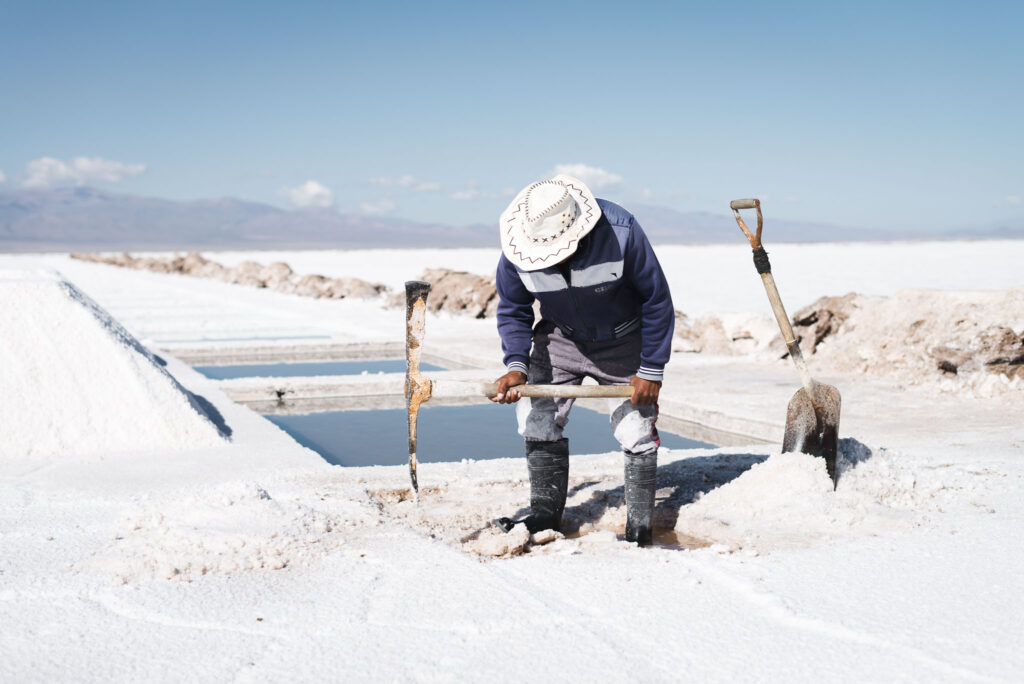
The ever burning-sun made his father and grandfather become blind already at a young age. Back then he used to cycle to the salt flat. About 30 kilometers, one way. At dawn temperatures frequently fall below -20°C. He therefore spent many nights in a self-constructed salt hut next to his pools. It is hard work, so he wishes his kids will do something else one day.
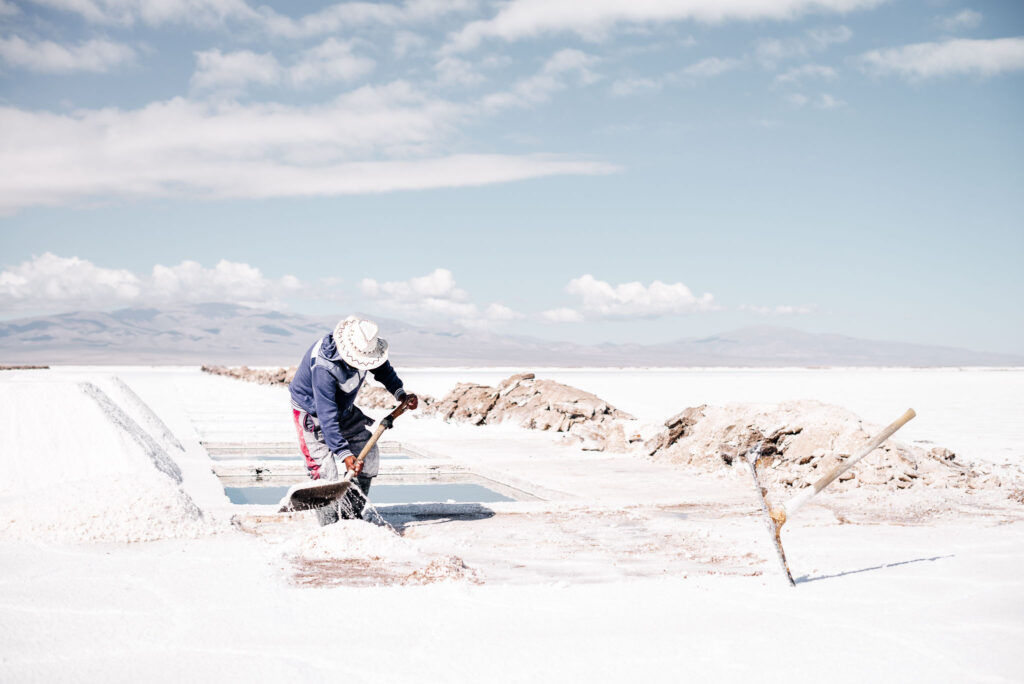
Today Ariel owns a motorcycle, and he sometimes works as a tourism guide. That means some extra money for his family, and it also allows him to show the world the place and life he chose. Whenever he speaks about the Salinas Grandes he seems fascinated himself, so he often compares it with a tree:
“For us the Salinas [Grandes] are like a tree. In other words, in June, July and mid-August, the salt does not grow because it’s very cold and the salt is frozen. Salt water does not, but salt does, it freezes. As of September the salt grows again. (…) For us, the salt flat itself is a tree. It breathes, it has movement and it is part of our life. I harvest it every year and it gives life to me and my family.”
Ariel Alancay
A young man, who chose this life on purpose. He still is a realist, or is it ambivalence?
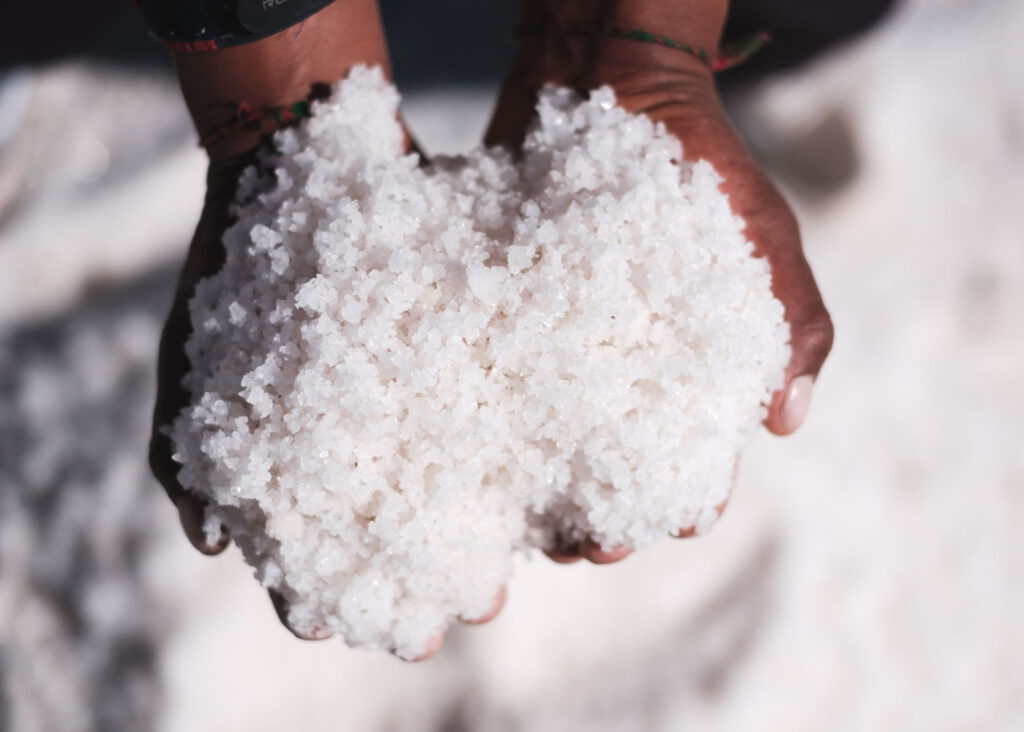
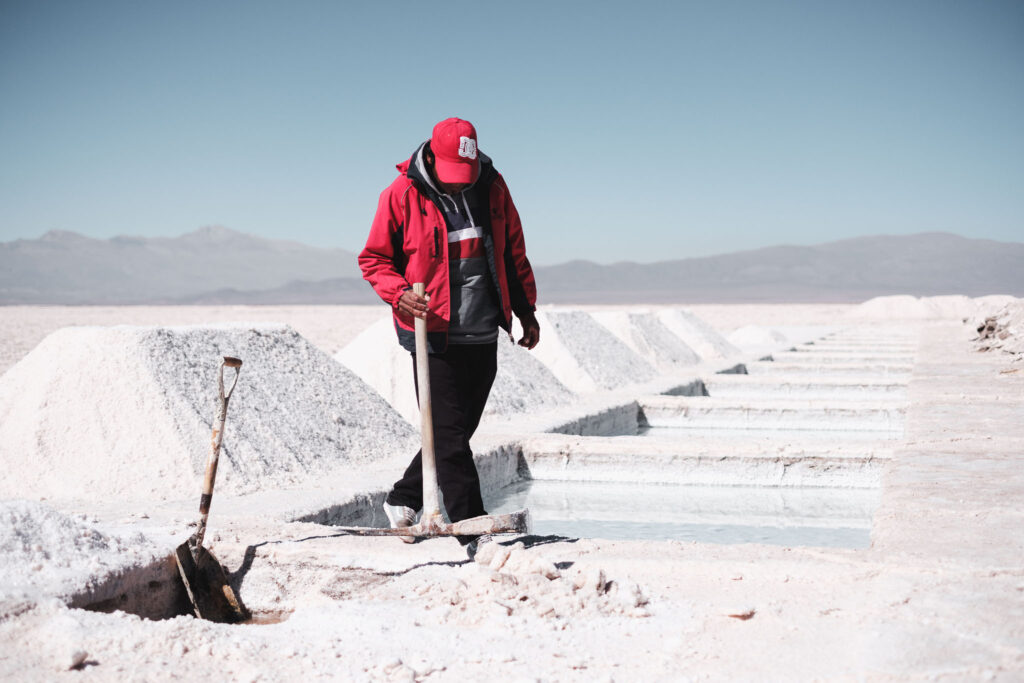
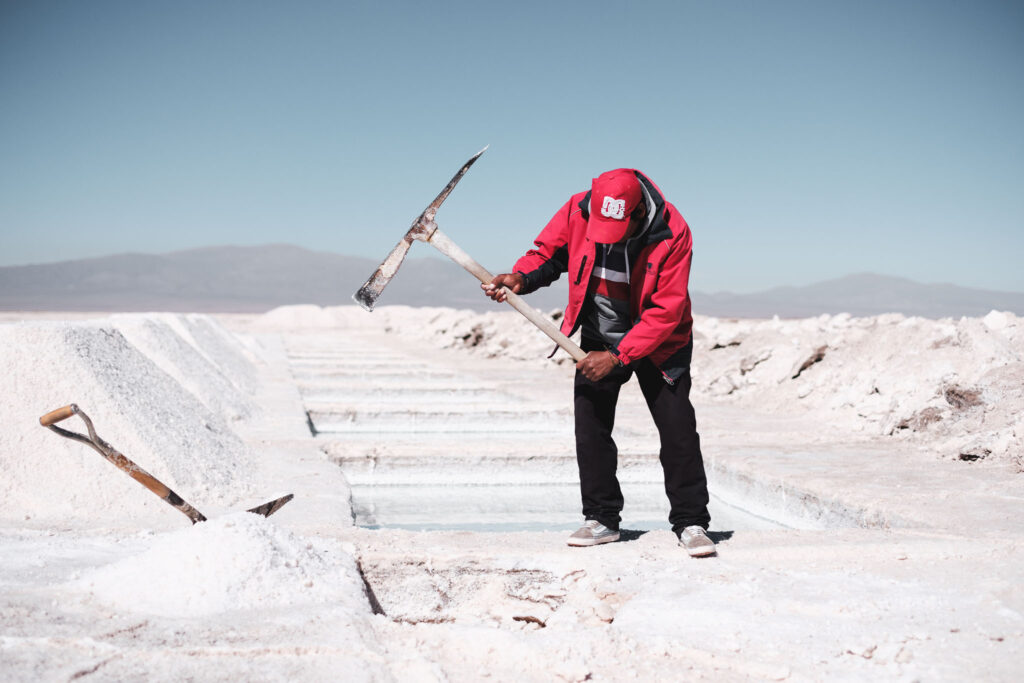
PhD in geography & heterodox economist, works on the global political economy of decarbonization, especially lithium and hydrogen. Strong focus on global production networks, human-environment relations and photography.